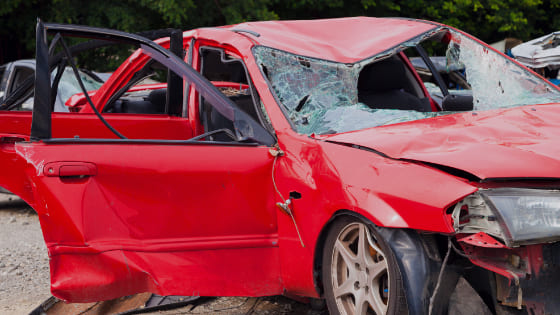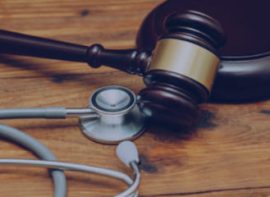No one ever expects to be in a car accident, but unfortunately, they happen all the time. If you’re involved in a collision, it’s important to know what to do (and not do) afterward. Here are the five most common mistakes people make after an accident, and what you should do instead.

1.Don't leave the scene of the accident, even if it's just a minor fender bender
It is important to remember that even if you only experience a minor fender bender, it is essential not to leave the scene. In many cases, even small accidents may result in significant liability due to bodily injury or property damage. Additionally, depending on the state that you are in, leaving the scene may be considered a criminal offense punishable by fines or jail time. You must stay put and exchange insurance information with any involved parties before departing. You should then contact your insurance company as soon as possible to ensure all parties are properly taken care of in such an event.
2. Don't apologize or admit fault - anything you say can be used against you later
Knowing what to say when something goes wrong is vitally important. In some situations, it can be easy to slip in an apology or admit fault- but words have power. Once you’ve said them, those words can be used against you in the future. When speaking with someone about a problem, it’s always better to stay away from taking responsibility for something – instead, focus on potential solutions and don’t fall into the trap of admitting fault before understanding all the facts of the situation. Knowing that anything you say can come back to haunt you later is a valuable lesson that will serve well whether in business or life.
3. Get the contact information from all parties involved in the accident, as well as any witnesses
In the aftermath of an accident, it is important to collect contact information from all parties and witnesses involved. Having this information on hand can greatly assist with filing reports and figuring out the events that led up to the incident. It is also an integral part of gathering evidence for insurance or legal claims later on. To ensure that all essential data has not been overlooked or forgotten, double-check with each involved party and witness for their contact details such as name, phone number, address, and other relevant information.
4.Take photos of the damage to both vehicles, as well as any injuries sustained
Taking photographs of the damage to both vehicles is a necessary precaution after an accident. It can provide valuable evidence as to which driver is liable and will also help verify any injury claims made by involved parties. Photograph all aspects of the car damage, particularly any skid marks or other visible signs of impact. When taking photos, be sure to include the registration numbers of all vehicles involved and any debris on the scene. Lastly, it’s important to document any injuries sustained and capture photos from various angles. Collecting photographic evidence provides reliable and accurate records that can protect your rights in times of an automobile collision.
5. Call your insurance company to report the accident and start the claims process
When an accident occurs, it is important to contact your insurance company as soon as possible. By making this call, you will initiate the claims process with them and provide them with the important details of your accident. It is helpful to have personal documentation such as license numbers and police reports for the incident before making the call. Knowing answers to questions about deductibles, coverage types, restrictions, or additional policies can also be beneficial. In addition to gathering information from you on the phone, many insurance companies will also offer follow-up instructions to continue processing the claim. With this information, your insurance provider can adequately assess the situation and determine how best to proceed.
Being involved in a car accident is never a fun experience, but by following these simple tips you can help make sure that the process is as smooth and stress-free as possible. Remember, always stay at the scene of the accident, get all the necessary information, and take plenty of photos. And most importantly, don’t apologize or admit fault – anything you say could be used against you later on down the road.



